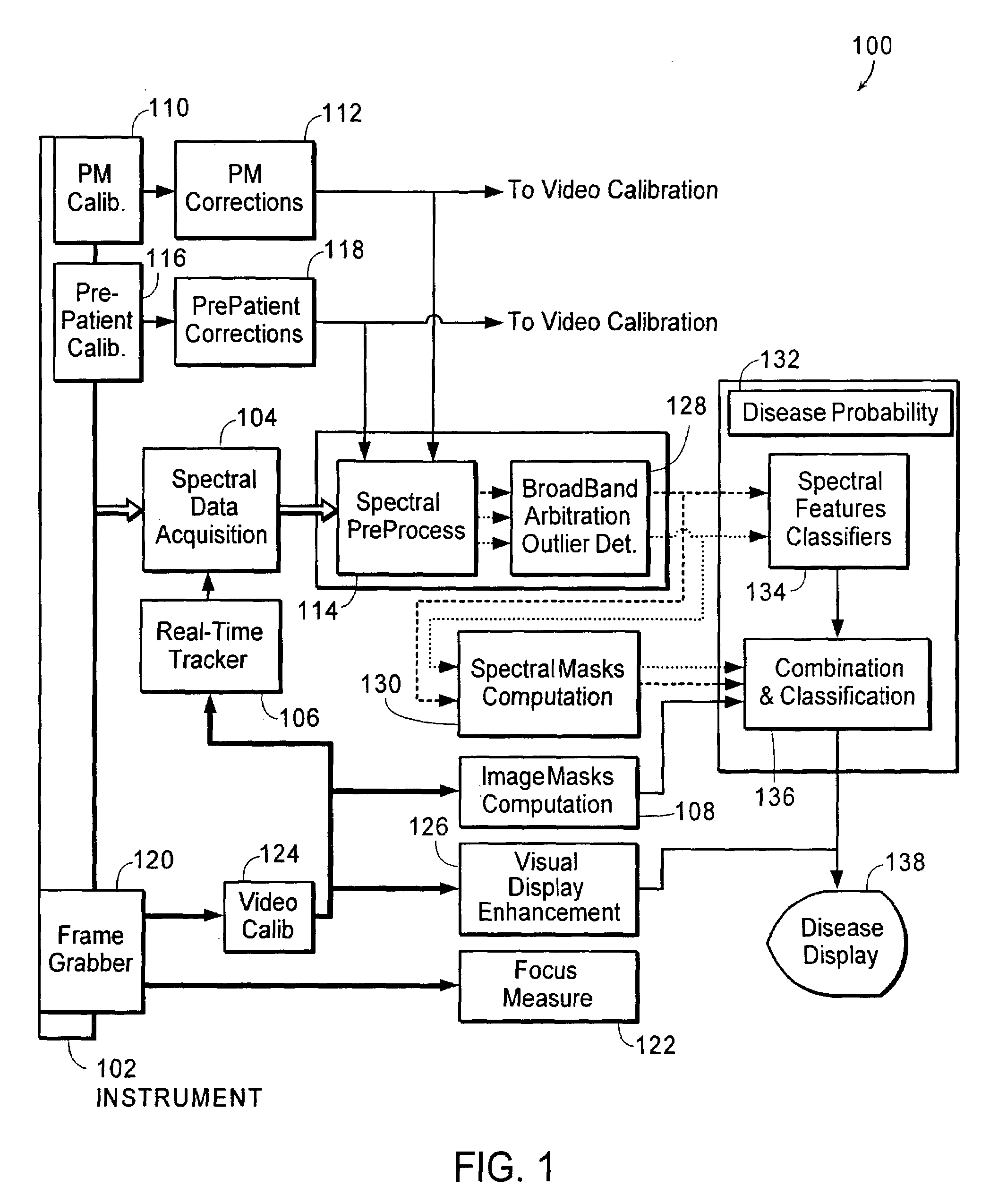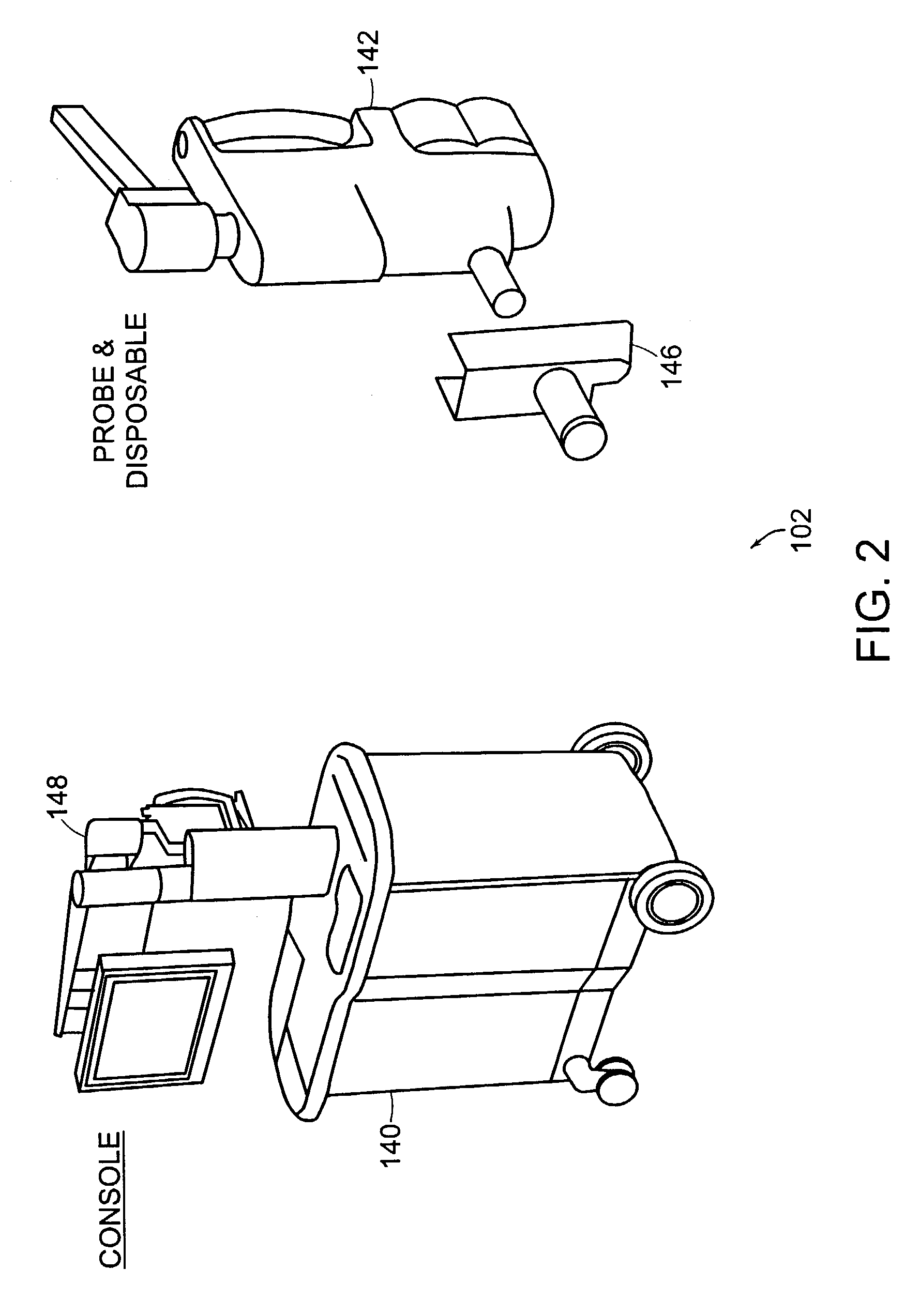Methods and apparatus for displaying diagnostic data
- Summary
- Abstract
- Description
- Claims
- Application Information
AI Technical Summary
Benefits of technology
Problems solved by technology
Method used
Image
Examples
Embodiment Construction
[0162]
Table of ContentsPageSystem overview30Instrument35Spectral calibration49Patient scan procedure97Video calibration and focusing100Determining optimal data acquisition window112Motion tracking129Broadband reflectance arbitration and low-signal masking156Classification system overview179Spectral masking184Image masking196Glarevid202[ROI]vid206[ST]vid207Osvid215Bloodvid219Mucusvid224[SP]vid228[VW]vid240[FL]vid253Classifiers262Combining spectral and image data273Image enhancement282Diagnostic display288
[0163]The Table of Contents above is provided as a general organizational guide to the Description of the Illustrative Embodiment. Entries in the Table do not serve to limit support for any given element of the invention to a particular section of the Description.
System 100 Overview
[0164]The invention provides systems and methods for obtaining spectral data and image data from a tissue sample, for processing the data, and for using the data to diagnose the tissue sample. As used here...
PUM
 Login to View More
Login to View More Abstract
Description
Claims
Application Information
 Login to View More
Login to View More - R&D
- Intellectual Property
- Life Sciences
- Materials
- Tech Scout
- Unparalleled Data Quality
- Higher Quality Content
- 60% Fewer Hallucinations
Browse by: Latest US Patents, China's latest patents, Technical Efficacy Thesaurus, Application Domain, Technology Topic, Popular Technical Reports.
© 2025 PatSnap. All rights reserved.Legal|Privacy policy|Modern Slavery Act Transparency Statement|Sitemap|About US| Contact US: help@patsnap.com



